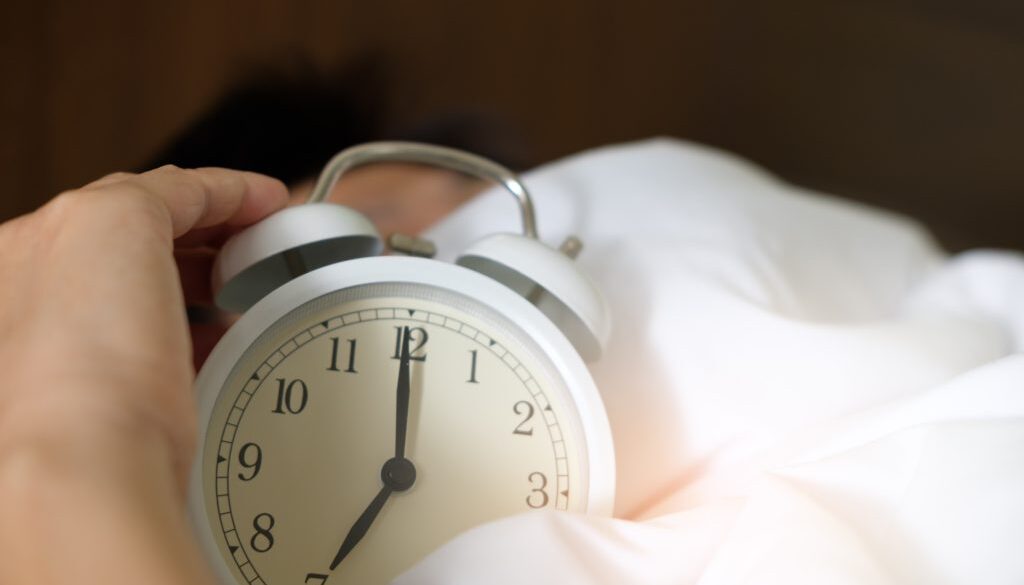Have You Been Sleeping Incorrectly?
By Laurie Larson

We’ve all been sleeping all of our lives; that’s a no brainer. What you may find alarming to learn is that you may be doing it all wrong.
There are obvious connections between our sleep and our health. When we lose out on sleep, our health begins to suffer. Chronically skipping out on sleep can make you experience the most painful effects of sleep deprivation including depression, obesity, heart disease, and even a decline in our gut health.
There’s a link between our sleep and our gut health?
The short answer is yes. Though there isn’t a plethora of research available at the moment, scientists are beginning to understand the complex dynamics relating to your sleep and your gut health.
Our microbiome is regulated by circadian rhythms, much like our sleep and so many other bodily systems. When your circadian rhythm experiences a disruption, your microbiome will suffer in tandem. This isn’t the only factor affecting your microbiome health. Poor diet, increased stress, and experiencing illness can all harm your microbiome, and not-so-coincidentally, these are all effects of sleep deprivation.
The relationship between your sleep and microbiome health is reciprocal. Our microbiome health can affect our sleep quality, and our sleep can affect the diversity and health of our gut. For the sake of your overall health and wellbeing, it’s important that you pay attention to both.
While it may seem a little more challenging to pinpoint how to manage your gut health, you can have a lot of control over bettering your sleeping practices. Learn how to take an inventory of the way you sleep and make any necessary corrections to set yourself up for better health.
Start a wind-down routine
If you don’t dedicate time to a wind-down routine in your evenings, you may have difficulty falling asleep and reaching deep sleep because your brain is too overstimulated.
Creating a wind-down routine doesn’t have to be an intimidating, formal task. It’s as simple as deciding how much time you need to properly relax and prepare for sleep, whether that be an hour before bed or two. Just make sure you still allot enough time for you to actually sleep seven to nine hours before you’ll have to wake up in the morning.
As for what your routine consists of that’s entirely up to you, though there are a few good go-to activities to help you relax. First things first, cut off the technology. The blue light that is emitted from TVs, smartphones, and the other devices in our lives stimulates the brain and inhibits the production of melatonin, the hormone that controls your sleep/wake cycles and helps you fall asleep at night.
That’s right. Your nighttime scrolling through Instagram should probably come to an end, along with the binge-watching of TV in bed. In a digital era, this may make you feel lost. Instead of staring at a screen, here are a few alternative evening activities:
- Read a book
- Put together a puzzle
- Crochet/knit
- Paint
- Color
- Do a crossword puzzle
Now that your mind is clear, focus on relaxing your body. Maybe the best way to do this for you is a warm bath or a cup of herbal tea. You can also incorporate essential oils like cedarwood and lavender to enhance either of these options. Another way to relax is to stretch or do some simple yoga moves.
Once you have a wind-down routine in place, try to stay consistent with it. Your body will eventually pick up on the signals and learn that this time is the time to prepare for sleep.
Adjust your sleeping environment
Now your body and mind are ready for sleep, but is your environment conducive of a good night’s rest? There are a few major factors that can interrupt your ZZZs: light, noise, and temperature. Here’s what you can do about each.
Light
If you live in a neighborhood or a busy area, you may experience nighttime interruptions from lights outside your window, cars driving by, or other light sources. Sometimes, regular curtains just don’t get the job done. If you must, you can resolve to using blackout curtains, which will completely leave out the light. If you’re worried this will prevent you from easily waking up alongside the sunrise in the morning, you can look into a wakeup light which operates on a timer to increase the lighting in your room and mimic natural lighting.
Noise
If you’re backed up to a busy street, this will be a major problem for you. The bad news is, you won’t be able to control outside sound disruptions in urban areas. The good news is, you can work to combat how easily they wake you up while you sleep. By using a white noise or other sound machine, smaller background noises can be masked and you can be less alerted by larger noises due to the constant sound already in your room.
Temperature
Too hot at night? Crank up the A/C or turn on a fan. You can also choose more breathable bedding products to help keep air circulating while you sleep.
Get more comfortable
A big component to better sleep is comfort. Start from the top and work your way down. How are your bedding products? Do you prefer a cotton or silk feeling? Are they breathable fabrics that don’t keep you sweating in your sleep? It takes some testing to figure out what works best for you and your comfort, but once you figure out the best combination, you’ll be extra excited to hop into bed every night.
Next, you’ll need to dig a little deeper. If you’re tossing and turning, struggling for comfort, or waking up with aches and pains, the problem may be an old, downtrodden mattress. After around seven to 10 years, your mattress takes some wear and tear, and the qualities that once made it great (like responsive innerspring coils and contouring foam) will lose their premium function. It may be time for an upgrade.
If re-doing your whole bedroom isn’t practical for you at the moment, you may benefit by fixing your sleeping position. Most people sleep on their side, but it’s not the best position to be sleeping in. While on your side, your body weight won’t be distributed evenly and you’re likely to feel pain in your hips, shoulders, and knees. Try switching to your back where your weight is more evenly distributed and you’ll be likely to stay cozy all night.
Sleep easy
Now that you have all the tools necessary to get better sleep, all it takes is the action to make the change. When you make the effort to actively pursue better sleeping habits, rest assured, you’ll be on your way to better nights of sleep and overall improved health.
Author’s bio: Laurie Larson is a freelance writer who writes on health, home, and lifestyle topics.



